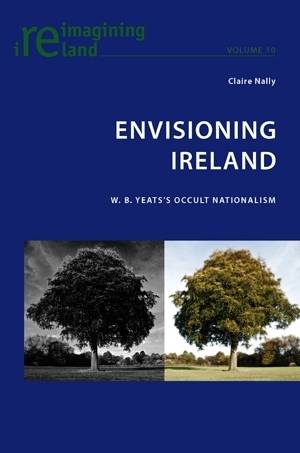
- Afhalen na 1 uur in een winkel met voorraad
- Gratis thuislevering in België vanaf € 30
- Ruim aanbod met 7 miljoen producten
- Afhalen na 1 uur in een winkel met voorraad
- Gratis thuislevering in België vanaf € 30
- Ruim aanbod met 7 miljoen producten
Zoeken
Omschrijving
Although W. B. Yeats is one of the most over-theorised authors in the Irish canon, little attempt has been made to situate his occult works in the political context of early twentieth-century Ireland. By evaluating the two versions of A Vision, published in 1925 and 1937, this book provides a methodology for understanding the political and cultural impulses that informed Yeats's engagement with the otherworld. The author suggests that the Yeatsian occult operates very firmly within the political parameters of Irish nationalism, often as a critique of the new Free State, or as an alternative way of mythologising and inaugurating a new nation state. The occult, far from being free of all political considerations, registers the poet's shifting allegiances, from the Celticism of the 1890s to his disenchantment with modern Ireland in the Free State.
Through close readings of Yeats's manuscripts and his primary and critical works, including a close assessment of the frequently neglected dramatic texts, the author seeks to force a rethinking of the critical reception of the Yeatsian occult through contemporary theoretical developments in postcolonialism, subjectivity, national identity and textual instability.
Through close readings of Yeats's manuscripts and his primary and critical works, including a close assessment of the frequently neglected dramatic texts, the author seeks to force a rethinking of the critical reception of the Yeatsian occult through contemporary theoretical developments in postcolonialism, subjectivity, national identity and textual instability.
Specificaties
Betrokkenen
- Auteur(s):
- Uitgeverij:
Inhoud
- Aantal bladzijden:
- 308
- Taal:
- Engels
- Reeks:
- Reeksnummer:
- nr. 10
Eigenschappen
- Productcode (EAN):
- 9783039118823
- Verschijningsdatum:
- 9/11/2009
- Uitvoering:
- Paperback
- Formaat:
- Trade paperback (VS)
- Afmetingen:
- 150 mm x 224 mm
- Gewicht:
- 453 g

Alleen bij Standaard Boekhandel
+ 150 punten op je klantenkaart van Standaard Boekhandel
Beoordelingen
We publiceren alleen reviews die voldoen aan de voorwaarden voor reviews. Bekijk onze voorwaarden voor reviews.











